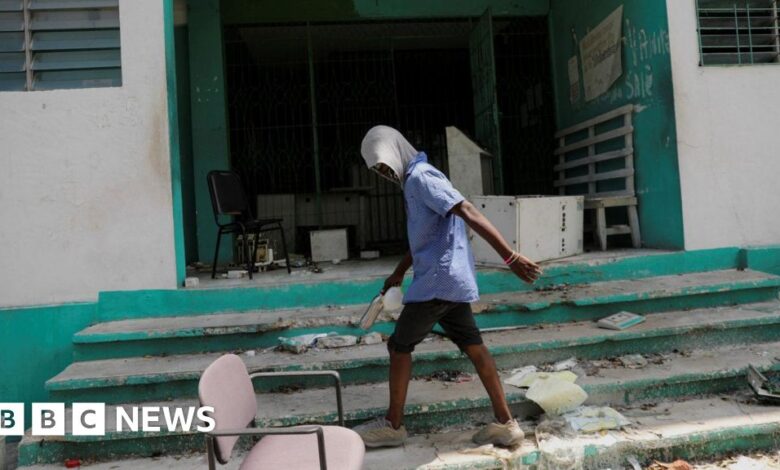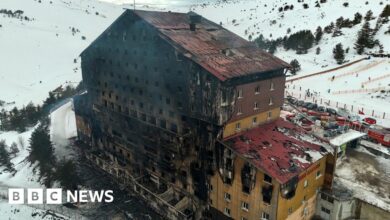The UN warns that Haiti’s health system is on the brink of collapse

The United Nations children’s agency, Unicef, warned that Haiti’s health system was “on the brink of collapse” and said six out of 10 hospitals in the country were barely functioning.
“The combination of violence, mass displacement, dangerous epidemics and increasing malnutrition has weakened the system,” said Bruno Maes, Unicef representative in the Caribbean country. Haiti’s health system”.
But he emphasized that “strangulation of the supply chain could be the cause of its disruption”.
Armed gangs still control much of the capital Port-au-Prince, and Unicef says millions of children are at risk of disease and malnutrition.
The country has been in a state of severe unrest since the assassination of President Jovenel Moïse in 2021, during which time gangs increasingly controlled large swathes of land.
Overall, up to 4.4 million people in the country are in need of emergency food assistance and 1.6 million people “face acute food insecurity at emergency levels, increasing the risk of children are wasted and malnourished,” Unicef said.
Port-au-Prince International Airport reopened earlier this week after nearly three months of closure.
But Unicef said it was currently operating at limited capacity and with a significant backlog.
The UN agency said the situation in the capital was particularly serious. Containers filled with vital supplies as well as many warehouses and pharmacies were confiscated or looted.
Reginald Fils-Aimé, director of strategic planning at the Haiti-based NGO Zanmi Lasante, told the BBC that by “controlling the roads to and from the capital, the gangs have influenced seriously affecting the supply chain and all means of transport, including medical staff and patient transport.” .
Dr. Fils-Aimé said criminal armed groups also control large areas in the Artibonite center, where his NGO has been active since the 1980s.
“Many essential medicines are scarce because most of them come from abroad. There has been a recent shortage of intravenous fluids, diuretics, blood pressure medications, and beta blockers.
“Children and infants living in camps for internally displaced persons are especially vulnerable to unsanitary environments and the water-borne diseases they spread. Now the rainy season has begun.” First, they are also susceptible to vector-transmitted diseases such as malaria and malaria,” Dr. Fils-Aimé added.
Nadesh Mijoba, country director of the Haitian Health Foundation (HHF) told the BBC that “there are many areas where health services that once provided to the community have been closed due to attacks and even sabotage.” destroy infrastructure”.
“For others, such as HHF, our patient intake is increasing significantly as patients have to walk further distances to seek medical services, sometimes at risk of violence, kidnapping , rape and even murder are very high.
“I have lived and worked in Haiti for more than 11 years and I have never seen a humanitarian situation this dire,” Ms. Mijoba said.
Kenya is set to deploy police to Haiti as head of an international task force to try to help the country’s transitional council restore some stability.
The country’s leader, William Ruto, met US President Joe Biden at the White House on Wednesday to discuss the operation.
Dr Fils-Aimé said he hoped Haiti’s main seaport and roads “will be clear in the coming months”.
Partners In Health, Zanmi Lasante’s Boston-based sister organization, has pushed for the creation of a humanitarian corridor to ensure the delivery of emergency aid around Haiti.
The gangs carried out deadly coordinated attacks, demanding the resignation of then-Prime Minister Ariel Henry.
He agreed to step down in March. Nine members of the transition council have now been sworn in to lead the country.
But the gangs have taken advantage of the power vacuum left by Mr. Henry’s departure and expanded their control over swathes of the country, which has become de facto lawless in many places.



